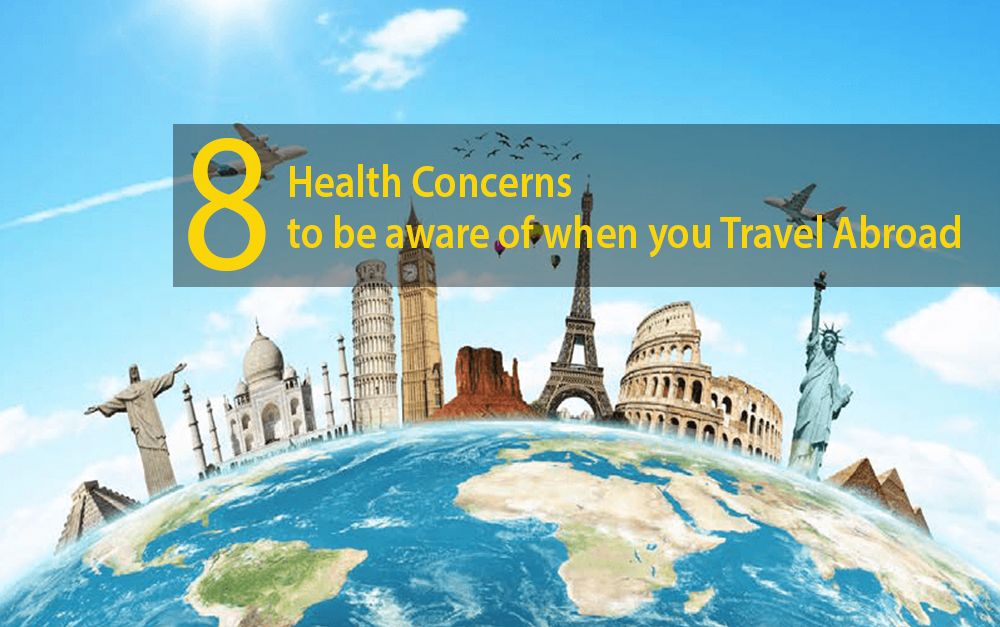Protect Your Health When Far From Home
By Jennifer Foss
Less than 100 years ago, world travel was a rare treat reserved mostly for the wealthy. Today, retirees cruise to South America, college students study in foreign and and modem day adventurers journey through the wilderness of Africa.
But as small as the world has become, there are still health concerns to be aware of when you travel abroad:
-
Get your shots If you travel to countries other than Western Europe, Canada, Austra1ia, New Zealand or Japan, you will probably need additional vaccines and medication.
-
Sometimes these shots must be given weeks or months before your departure to allow than time to take effect, so visit your doctor early.
-
If you visit countries in the Indian sub-continent, East Asia and South America, you will probably need vaccinations for Hepatitis A and B, Japanese encephilitis, typhoid and malaria.
-
Visitors to the Middle East and Africa will need the above vaccinations along with meningitis and yellow fever vaccines. Pack the medicine cabinet although it may feel like you’re packing everything but the kitchen sink, there are certain items you’ll need while traveling internationally, including: An extra pair of eye glasses (or contact lenses. along with a current eye prescription. A medical identification bracelet to alert others about any health problems you may have. Any prescriptions medications and a signed and dated statement from your physician indicating the proper dosage and explaining why you take the medication. Over-the counter medications and treatments that you may need, such as diarrhea medicine, cough syrup, allergy medicine, aspirin, eye drops sunscreen and insect repellant. While traveling, avoid buying over-the-counter medicine unless you’re familiar with the product. Not all countries have the same quality and safety standards for medications as required and many standard medicines are known with different brand names.
-
Stop Stomach Bugs No one wants to spend his or her vacation in the bathroom, but the risk of intestinal infections can be high in non industrialized countries with poor sanitation. To avoid traveler’s diarrhea, it is recommended that you: Drink only canned, bottled or carbonated beverages. Also, wipe off bottle and can rims to avoid contamination.
-
Don’t drink beverages with ice. Wouldn’t know in water the ice has been produced. Don’t eat food purchased from street vendors. Don’t eat pasteurized dairy products. Boil, peel and cook all raw food, including vegetables.
-
If you’re going to be in an area where you won’t be able to boil your water, you can purchase disinfecting iodine tablets from your local sporting goods/camping store or pharmacy . Insure your health If you break your leg while hiking through the jungles of Thailand, you’re going to need more than a suitcase full of antacids and aspirin. However, a trip to a local hospital usually requires payment up front in advance of treatment.
-
A short-term health insurance policy for travelers may help protect you from these large out-of pocket expenses. A travel policy may also be invaluable if you need to be transferred to another city or country for a medical emergency. If your health insurance company won’t cover you outside the country of your residence, there are insurance companies that specialize in travel health insurance.
Want to write for InnoHEALTH? send us your article at magazine@innovatiocuris.com

